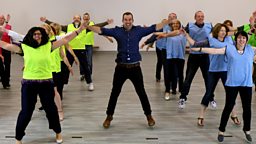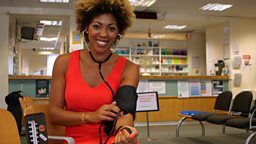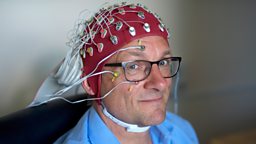How can I deal with anxiety and panic attacks?
About one in ten of us will experience a panic attack in their lives.

This could be triggered by certain situations but they can even happen at random, with very little warning.
No one is immune and it can affect anyone at any time.
A panic attack is when the body experiences an intense rush of both mental and physical symptoms, creating an overwhelming sense of fear.
These might make the person may feel like they have lost control and feel desperate to get out of the situation, but it can also make many people feel that they are having a heart attack.
Key signs of a panic attack
- Pounding heart
- Shortness of breath
- Sweating
- Dizziness and nausea
- Shaky limbs
- Chest pains
Although a panic attack can make you feel like you are about to collapse, or even worse die, it is usually harmless. The physical symptoms are caused by you going into ‘fight or flight’ mode. This means your body is trying to take in more oxygen so your breathing gets faster. Your body also releases hormones, such as adrenaline, which makes your heart beat faster and your muscles tense up.
It can be easy for a one-off panic attack to become something more frequent as you start to fear them occurring again. Don’t let the fear of panic attacks control you. The symptoms always pass and they are not a sign of anything bad.
During a panic attack
We spoke to Dr Nick Grey, Consultant Clinical Psychologist, South London and Maudsley NHS Foundation Trust about how best to cope with a panic attack. He says that it is important to remember this is just an anxiety problem and there is no REAL danger.
If you can try and stay in the situation until the anxiety has lessened, confronting your fear will give you a chance to find out that nothing’s going to happen. Sometimes it might help to have someone with you for reassurance.
If you have shortness of breath and feel like you are unable to breathe then try doing a breathing exercise to ease this – breathe in as slowly and deeply as you can through your nose, breathe out slowly and deeply through your mouth. Some people find it easier to count to five on each breath. Closing your eyes might help you to focus too.
If you see someone experiencing symptoms check whether they need help and if you are experiencing a panic attack remember to breathe and that the symptoms will pass.
Symptoms normally last for 5-20 minutes but if they don’t go away with breathing exercises after 20 minutes or you still have a rapid heartbeat then seek medical advice. This could be a sign of panic disorder, which affects 2 in 100 people in the UK.
Dealing with recurring panic attacks
Talking therapies, such as cognitive behavioural therapy (CBT), can help you change the way you think about and interpret your symptoms. This can be prescribed through your GP, but there is no need to go to your doctor — you can also refer yourself for services using the , in some areas.
There are ways you can help yourself prevent panic attacks as well:-
- Work out your particular stress or trigger
- Carry out daily breathing exercises
- Build physical activity into your daily routine’
- Eat regular meals
- Avoid caffeine, alcohol and smoking
Although panic attacks come on suddenly, and sometimes with very little warning, these intense feelings of fear last do pass. They can be very unsettling but do remember that nothing bad is going to happen to you.
If you need help don’t forget to speak to your GP, look out for local self-referral services or contact local charities and support groups. Help is out there, and the psychological therapies for anxiety and panic attacks are very effective indeed.


























